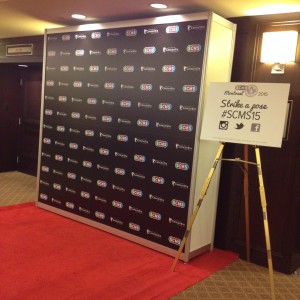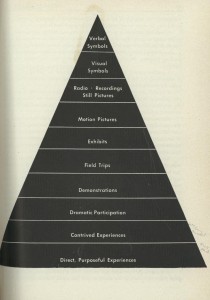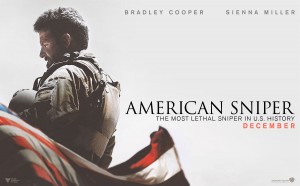
Bill Kirkpatrick continues our week-long series of reports from the SCMS 2015 conference. He argues that radio studies within SCMS is coming into its own, and the Society is better for it.
Read more »

Bill Kirkpatrick continues our week-long series of reports from the SCMS 2015 conference. He argues that radio studies within SCMS is coming into its own, and the Society is better for it.
Read more »

The Society for Cinema and Media Studies annual conference, held this March 25-29, was in many ways a media event. But what kind of media event was it, and what are the implications of the conference's more public presence?
Read more »

Marvin Gaye has been in the headlines in recent weeks, thanks to a court decision holding musicians Pharrell and Robin Thicke responsible for borrowing Gaye’s intellectual property in their single, “Blurred Lines.” While Gaye’s family has much to gain in safeguarding his legacy and its profit potential, the challenge of outside parties negotiating the...
Read more »

Post by Sylwia Szostak, Research Associate, Department of Social Sciences, Loughborough University This is the third installment in the ongoing “From Nottingham and Beyond,” series, with contributions from faculty and alumni of the University of Nottingham’s Department of Culture, Film and Media. This week’s contributor, Sylwia Szostak, completed her PhD in the department in 2014. The majority of...
Read more »

When Fox’s drama Gotham first premiered, it immediately became clear that its villains were going to be one of the primary foci. After all, while the series’ ostensible protagonists are Detective Jim Gordon (Ben McKenzie) and the very young Bruce Wayne (David Mazouz), Gotham’s aesthetic suggests that it is actually the two primary villains, Fish Mooney...
Read more »

Alex Russo previews the radio oriented papers, workshops, and presentations at this week's upcoming Society for Cinema and Media Studies conference in Montreal.
Read more »

Nintendo's move into mobile gaming signals a shift in strategy, but one carefully articulated in order to—for now—maintain the company's gaming philosophy.
Read more »

Last week's announcement that Tim Burton will direct a remake of Disney's Dumbo is a reminder that in Burton's career we witness the convergence of the aesthetic logic of allusionism and the corporate logic of franchising.
Read more »

In the so-called “attention economy,” brands increasingly harness the immaterial labor of social media participants. To what extent can these digital activities by understood as gendered? This post draws on findings from a recently published International Journal of Cultural Studies article to explore the gendered politics of social media labor.
Read more »

What makes technology educational? Brian Gregory prompts this inquiry in his consideration of how Edgar Dale's ideas about sensory learning fit into the history of educational radio and ed tech.
Read more »

There is a difference between the Canadian edition of Netlix and the Canadians who watch Netflix. What does that mean for the future of the service in Canada?
Read more »

Post by Debra Ramsay, Research Associate, Technologies of Memory Project, Glasgow University Following is the second installment in the series of fortnightly blogs “From Nottingham and Beyond,” featuring contributions from faculty in the University of Nottingham’s Department of Culture, Film and Media and our alumni working in higher education or media industries in the U.K. and abroad. This week’s...
Read more »

The FCC’s new Open Internet rules are a major come-from-behind victory for net neutrality. How in the world did this actually get done? And what exactly happens now?
Read more »

The most consequential TV newsfilm of the 20th century records the beating of voting rights marchers on the Edmund Pettus Bridge in Selma, Alabama on March 7, 1965. It led directly to the passage of the landmark Voting Rights Act. With the 50th anniversary commemorations of “Bloody Sunday,” network and cable news channels...
Read more »

In her memoir, Girl in a Band, musician Kim Gordon addresses how fashion and music are mutually constitutive outlets for creative expression and feminist critique.
Read more »